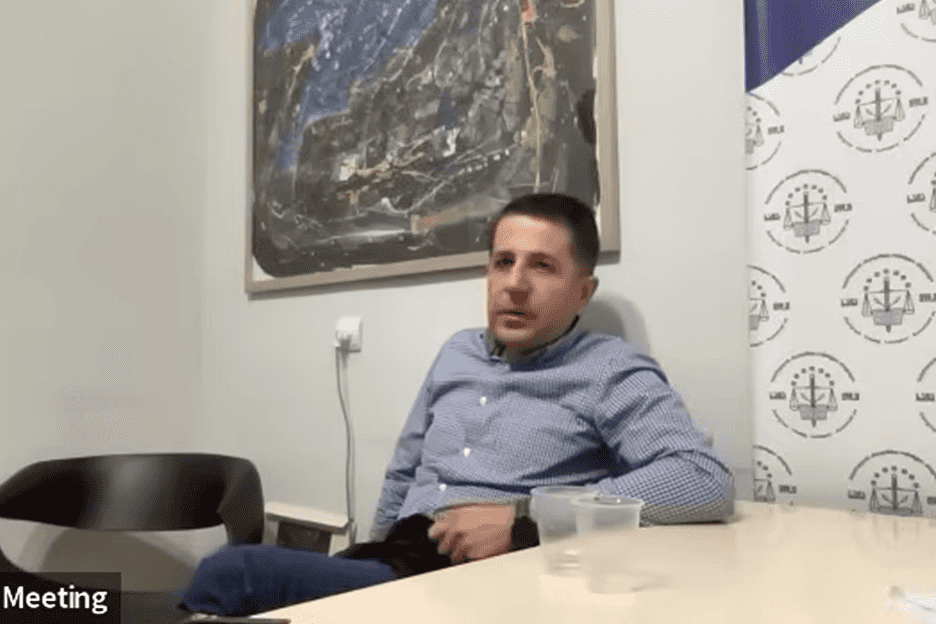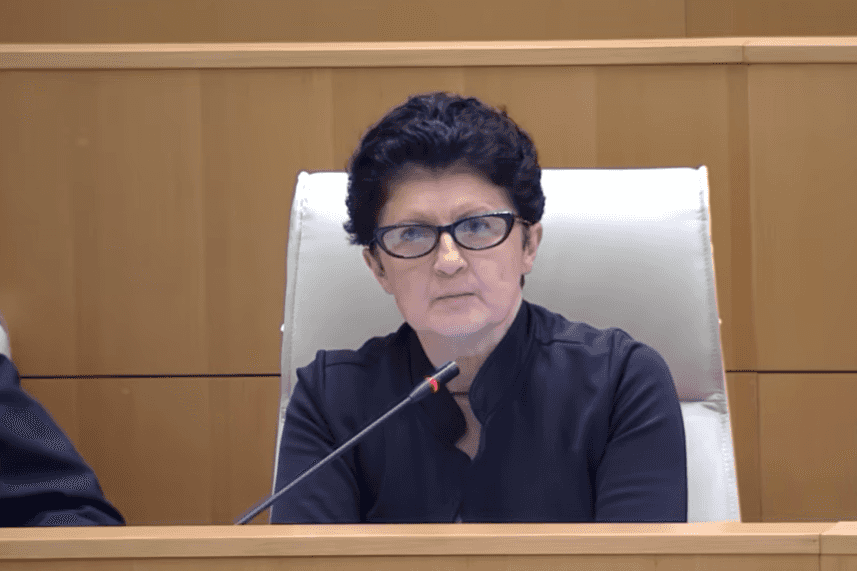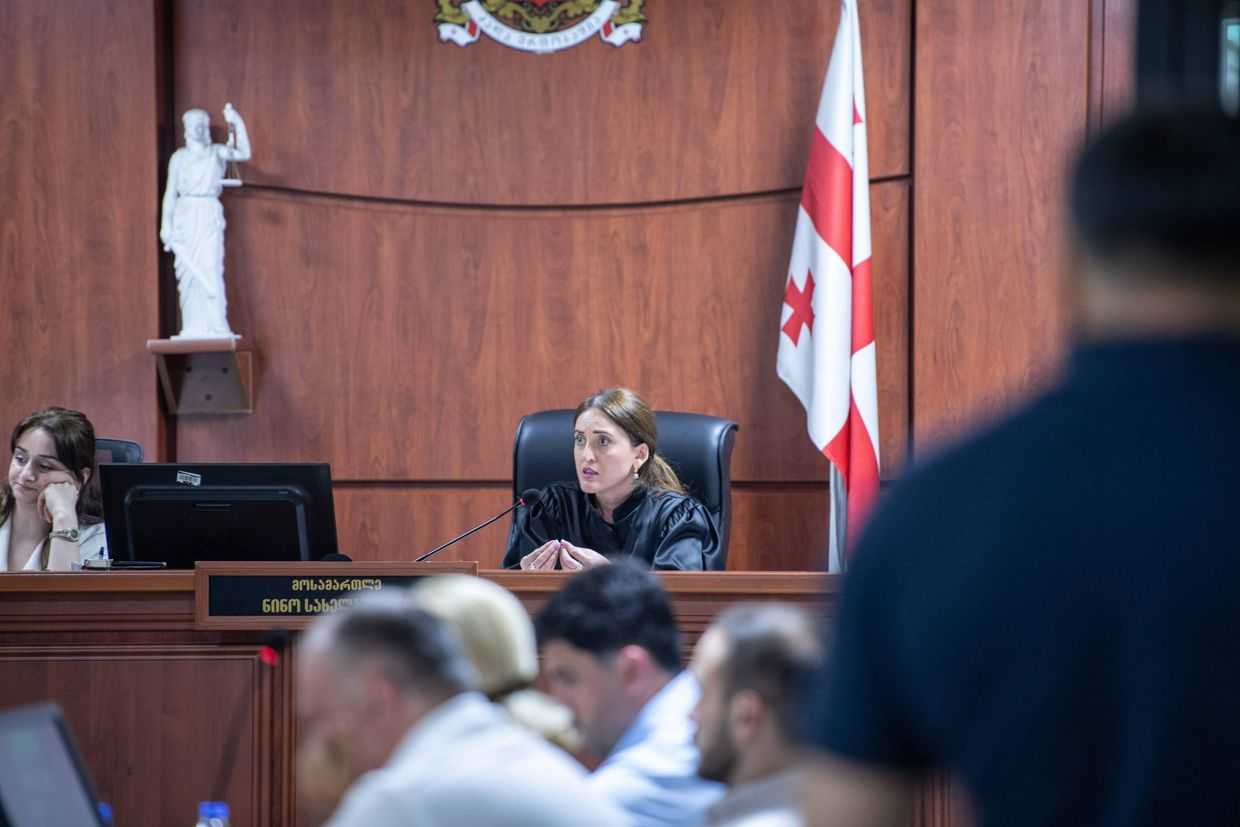
The Georgian Dream parliamentary majority has deliberately failed quorum to prevent opposition MPs from setting up a commission to investigate senior Georgian judges sanctioned by the United States.
The Wednesday session would have seen 50 opposition MPs join forces to form a temporary fact-finding commission to investigate allegations of corruption against four judges sanctioned by Washington.
However, the session fell 16 MPs short of meeting quorum after the parliamentary majority deliberately boycotted the session.
The chair of the ruling Georgian Dream party, Irakli Kobakhidze, hailed the failure to establish the commission as ‘an act of solidarity’ affirming Georgia’s judicial independence.
‘We will continue to do everything we can to prevent the [United] National Movement (UNM) from establishing a commission on judiciary issues. This is fundamentally unacceptable to us’, stated Kobakhidze. ‘The court will remain independent; it is one of our most significant accomplishments since 2012, and we will not allow anyone to jeopardise it.’
This was the opposition’s second attempt to establish the commission after the ruling party similarly disrupted a previous session on Tuesday, despite having mobilised a significant number of MPs who had been intermittently boycotting parliament for various political reasons.
On 5 April, the US Department of State imposed visa restrictions on one former judge and three incumbent judges for their involvement in ‘significant corruption’.
The four Georgian nationals and their immediate family members have been banned from entering the USA.
[Read more on OC Media: US sanctions senior Georgian judges for ‘undermining rule of law’]
Senior figures from Georgia’s ruling party have condemned the sanctions and accused them of being ill-informed and unfounded, accusations the US Ambassador to Georgia Kelly Degnan rejected on Wednesday.
‘There was no mistake involved here. The United States has full confidence in the basis for the visa designations against these four individuals for their involvement in corrupt acts’, stated the ambassador.
Degnan also expressed concern over the parliament’s failure to create an investigative commission, noting that it was ‘never helpful when parties boycott the parliamentary sessions’.
The chair of Georgian Dream additionally claimed that the former ruling party, the UNM, were attempting to retake control of the judiciary and transform it into a ‘bloody, criminal judicial system’ once again.
Despite Kobakhidze emphasising the role of the UNM in the motion to establish the commission, the proposed investigative body also has support from other opposition groups, including Lelo, the Reform Group, Girchi — New Political Centre, Citizens, and MPs belonging to For Georgia, a party led by former Georgian PM Giorgi Gakharia.
Kobakhidze has referred to the opposition bloc as the ‘collective National Movement’ when denouncing their plans to establish the commission.
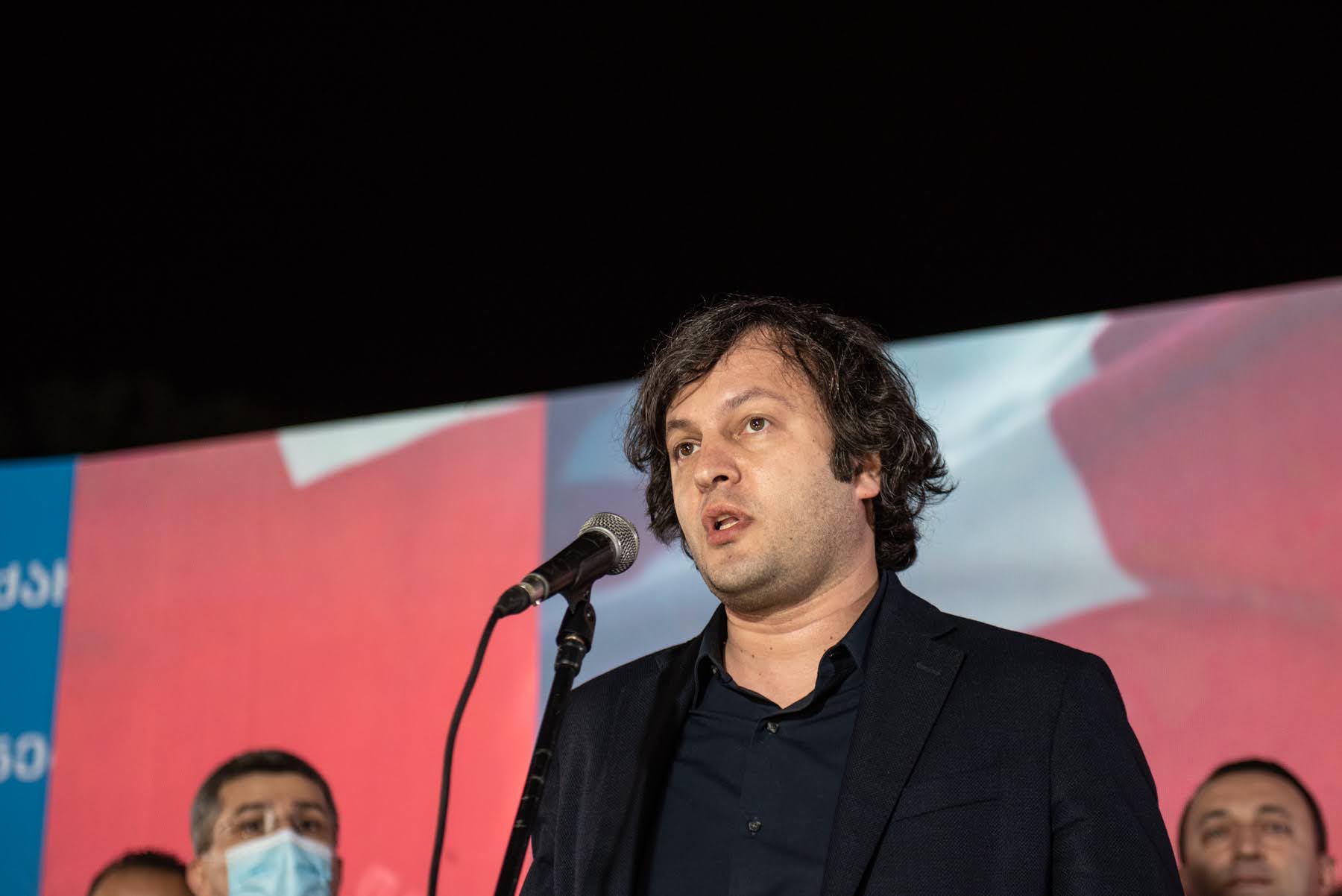
Bidzina Ivanishvili, the founder of Georgian Dream and Kobakhidze’s predecessor as party chair, has made similar claims, prompting MPs to leave the ruling party in 2019, costing Georgian Dream its constitutional majority at the time.
[Read more on OC Media: Analysis | Why the ruling party in Georgia is losing its MPs]
In August 2021, the government decided to forgo €75 million in EU aid contingent on Georgia’s judicial reform.
‘Obstruction is also telling’
‘The main mission of the fact-finding commission has already been half-completed: the judiciary’s collusion with this government has been established’, noted Iago Khvichia, Girchi’s chair, on 19 April.
Khvichia was understood to be referring to mounting allegations of Georgian Dream’s close ties with a powerful group of judges, informally referred to as a ‘clan’, including those recently sanctioned by the US.
The head of the Georgian Court Watch group, Nazi Janezashvili, called Kobakhidze’s ‘solidarity’ with Georgian judges ‘problematic from the standpoint of separation of powers’.
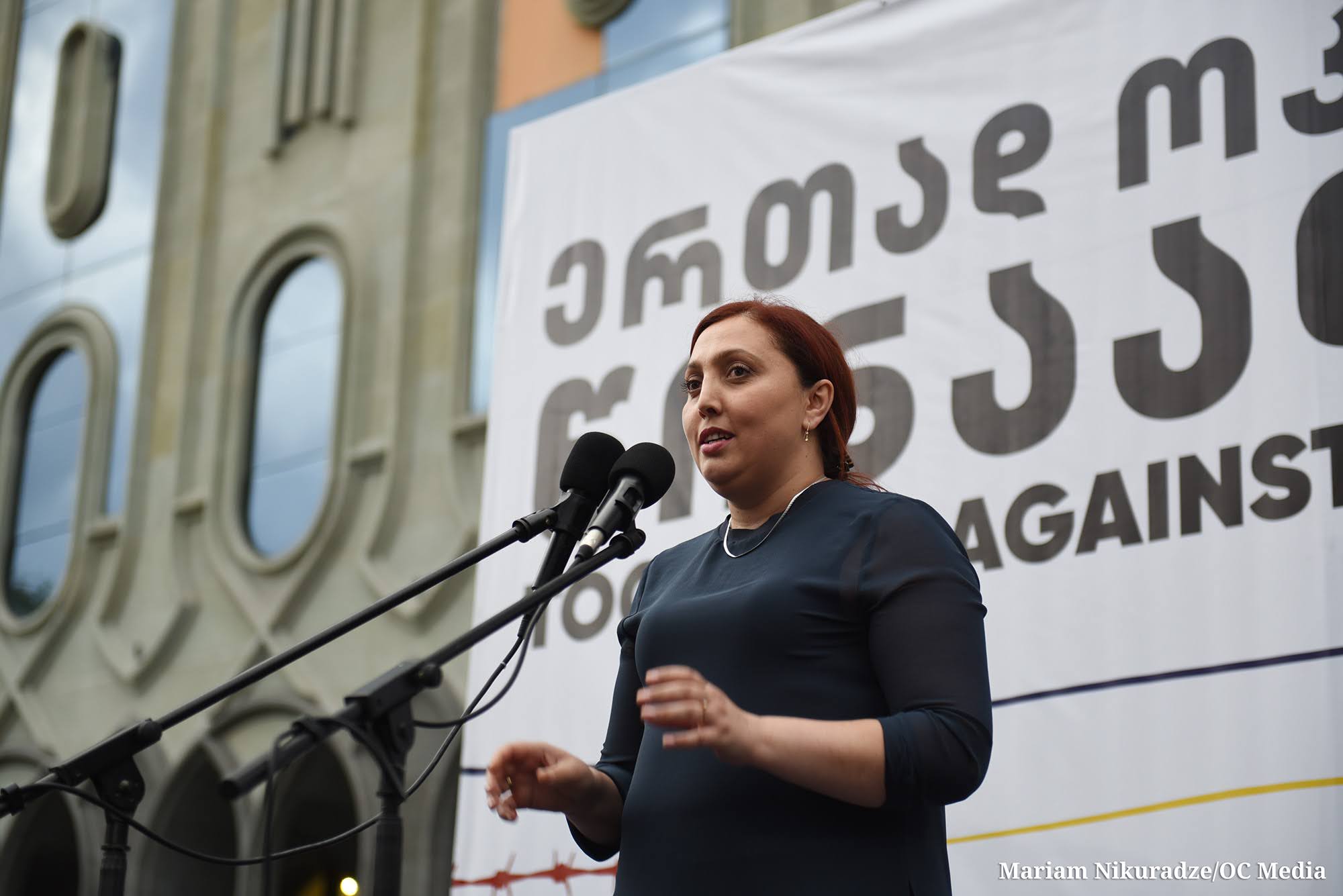
‘The judiciary doesn’t need political solidarity. It should be institutionally independent, and this should be guaranteed by respective mechanisms that the incumbent party should ensure’, Janezashvili told IPN on Wednesday after the second quorum failed.
The ruling party’s tactics on 19 April were also condemned as an ‘abuse of procedures’ by the Georgian Coalition of Independent Judiciary.
‘The so-called act of solidarity is an expression of support for the influential group in the judiciary — the Clan. At the same time, this decision means taking political responsibility for the corrupt deals made by influential judges in the justice system’, their statement read.
A number of local watchdog organisations, including the Georgian Young Lawyers Association, the Human Rights Centre, and the Georgian Court Watch, had petitioned the parliament to establish a similar commission months before the US sanctions.
The groups claimed last September that the Georgian judiciary needed to be investigated due to allegations of corruption and attempts to influence court decisions.
The Georgian opposition has not led any major commissions since 2018, during the previous convocation of the parliament.
Prime Minister leaps to the defence
Two of the sanctioned judges spoke out against Washington’s sanctions, describing them as an effort to exert pressure on a nation’s judiciary from abroad.
Levan Murusidze, one of the three sanctioned incumbent judges, called on Prime Minister Irakli Gharibashvili to meet with the judges and listen to their perspective on the issue.
Murusidze is a member of the High Council of Justice (HCOJ) and an Appeals Court judge. Several civil society groups have previously criticised him for his controversial rulings, some disputed by the European Court of Human Rights in Strasbourg.
The HCOJ is a judicial oversight body responsible for appointing and dismissing judges and ensuring the independence of the judiciary systems.
Gharibashvili met with the HCOJ on 10 April, lauding the judiciary as ‘exemplary’ and vowed not to allow domestic or international ‘intervention’ in the court.
Irakli Shengelia, Deputy Chair of Georgia’s Appeals Court and one of those named by the US as being involved in corruption went so far as to call the ruling a ‘lynching’ on 6 April.
Shengelia added that he had no interest in travelling to the USA because he had a ‘traditional family’.
‘Given that one of the main democratic achievements in the USA is considered […] changing the sex of a child from the age of six, there is nothing for me there’, wrote Shengelia.
He also vowed to ‘file a lawsuit’ against the designation in a US court.
In 2021, Irakli Shengelia was accused of nepotism when the HCOJ slated his brother-in-law, Levan Tevzadze, as a Supreme Court Justice nominee to be confirmed by the parliament.
On 6 April, Tevzadze repeated Shengelia’s accusations of ‘lynching’ of the judges.
The third sanctioned Georgian judge and Shengelia’s superior, Mikheil Chinchaladze, who replaced the also sanctioned Valeri Tsertsvadze in 2017, has remained silent about the sanctions.



